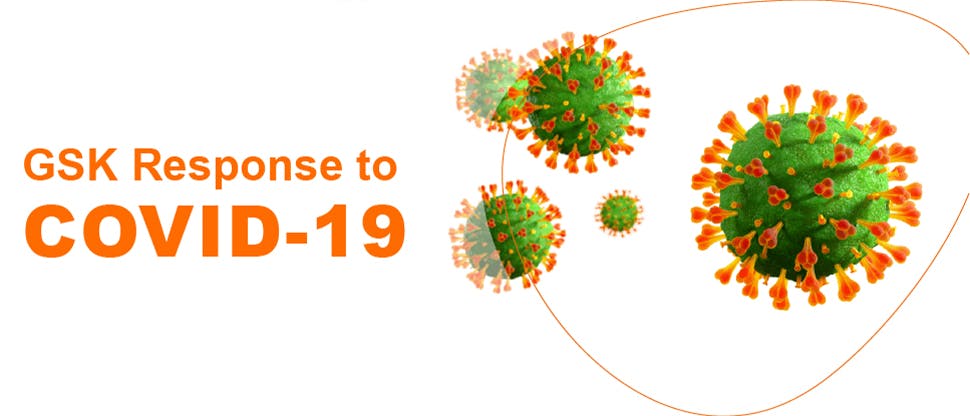
Our Initial Response to COVID-19
Supporting research and the production of candidate COVID-19 vaccines
GSK has made its vaccine adjuvant technology available to scientists and organisations working on candidate vaccines for COVID-19.
The use of an adjuvant is of particular importance in a pandemic situation since it may reduce the amount of vaccine protein required per dose, allowing more vaccine doses to be produced and therefore contributing to the protection of more people.
Since announcing partnerships with the University of Queensland and Clover Biopharmaceuticals, we have expanded our collaborations and are now working with five partner companies and research groups across the world, including in the USA and China.
Early indications of the adjuvant’s benefit have been reported in the first pre-clinical experiments by one of the collaborations and the data reported from all collaborations will continue to inform next steps.
We are also evaluating further collaboration opportunities with several other companies and institutions, including exploring options to share available manufacturing capacity, to help provide scale manufacturing and production for an eventual vaccine.
Screening and research into new medicines
GSK is entering into the new collaborative research effort, the COVID-19 Therapeutics Accelerator.
The aim of the Accelerator is to bring pharmaceutical companies and expert academic institutions into coordinated research programs, with the aim of bringing the most promising molecules forward that could be used to treat cases of COVID-19. GSK will contribute by making available compounds from its libraries for screening for activity against COVID-19.
In addition, GSK is evaluating its marketed pharmaceutical products and medicines in development to determine if any could be used beyond their current indications in response to the pandemic.
This includes medicines with potential direct anti-viral activity and those with possible utility in prevention or the treatment of secondary complications of COVID-19. The company is also evaluating options to make available its specialised R&D laboratory space to help in research and testing of COVID-19.
Helping frontline health workers and offering expertise
GSK is donating $10 million to the COVID-19 Solidarity Response Fund, created by the UN Foundation and WHO, to support WHO and partners to prevent, detect, and manage the pandemic, particularly where the needs are the greatest.
Amongst its objectives, the fund will enable distribution of essential supplies such as personal protective equipment (PPE) to frontline health workers. GSK is also donating surplus reagents to support diagnostic testing to several countries and is preparing to do the same for surplus PPE.
GSK has also initiated new volunteering processes for people working at the company, to enable those with medical expertise to provide support to frontline health workers, whilst at the same time ensuring we protect supply and development of our medicines and vaccines. Initiatives have also been started to use salesforce personnel to help with delivery of PPE and testing equipment, and for specialists, such as procurement leaders, to work with national governments on developing supply chains.
Taking action to deliver high-demand consumer healthcare products
GSK Consumer Healthcare is prioritising actions in its supply chain to deliver more products that are in high demand due to COVID-19. This includes increasing production for pain and fever relief brands such as Panadol and multi-vitamins and dietary supplements such as Emergen-C and Centrum.
Further actions and updates
We will provide regular updates on our progress and our efforts to support the global response to COVID-19. We continue to monitor the situation closely and will take further actions to develop our response to the pandemic, including ideas and support for long-term, global pandemic preparedness. In doing so, we will continue to put the needs of patients, healthcare professionals and our people first at all times.
Download the GSK Initial Response to Covid-19 Infographic here